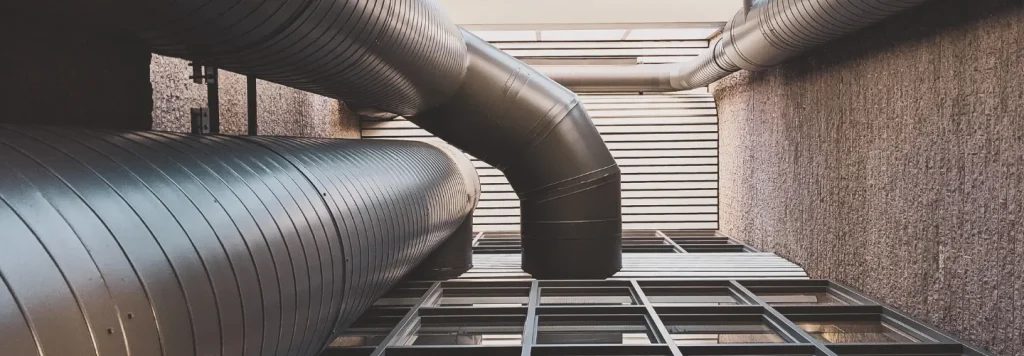Before you invite a contractor to work on your home, make sure they’re thoroughly vetted and up for the job.
Any time you turn to a contractor for work around your house, it’s important to choose someone fit for the job. You’ll want to make sure you’ve vetted their workmanship, and list clearly what work you want performed, with a set scope for the project. It’s also important to make sure the contractor is properly licensed and insured in case something goes wrong.
With the help of Travelers Insurance, here’s an easy, 8-step contractor checklist to help you select who to hire.
1. Get Multiple Estimates
Speak with several contractors and obtain written estimates from at least three of them. When comparing multiple estimates, make sure you’re comparing apples to apples. Examine building materials, work methods, timelines, and other factors that may differ from one contractor to the next. Be wary of estimates that are either too high or too low.
2. Hire Local, Licensed Contractors Whenever Possible
Local contractors are easier to contact if problems arise with the work later on, and they are more likely to be familiar with local building codes. Inquire about the contractor’s physical address in your area. Anyone who goes door-to-door or refuses to leave a contract overnight should be avoided.
3. Check Their Past Work
How has their previous work turned out? Do they specialize in the type of work you require? Check references for information on the quality of their products, workmanship, and customer service. Inquire with the Better Business Bureau about their professional reputation and years in business. It is preferable to hire a contractor with more than five years of experience.
4. Check Their Insurance and Bonding
Check that the contractor is adequately insured and bonded. Request a certificate of insurance (COI) from the contractor, which should include the name of the insurance company, policy number, and policy limits. You can contact the insurance company directly to confirm coverage and ensure that the policy is still active. Do not do business with a contractor who lacks the necessary insurance coverage, as you may be held liable for accidents that occur on your property if the contractor is not insured.
5. Get Everything in Writing
Before beginning work, obtain a comprehensive contract. Make sure everything is in writing and that the contract is clear. If the project involves significant costs, consider having a lawyer review the proposed contract for your protection before signing it. The contract should include the following provisions:
- A detailed description of the work to be done and when (start and end dates) as well as the cost of each item.
- A payment schedule, such as one-half down and one-third when work is partially completed, with the balance due upon repair completion.
- Any applicable guarantees should be written into the contract and clearly state what is guaranteed, who is liable for the guarantee, and how long the guarantee is valid.
- Both parties’ signatures are required. A contract with blank sections should never be signed.
Changes to the contract should be acknowledged in writing by all parties. Request confirmation from the contractor that they have obtained all necessary building permits. If you want to cancel a signed contract, you must follow the cancellation clause. To ensure that you have proof of the cancellation, send written notification via registered mail.
6. Understand Your Right to Cancel
According to federal law, you may be entitled to a “cooling off” period during which you can cancel the contract without penalty. To learn more about your rights, consult the Federal Trade Commission and your state’s laws. During the cooling-off period, make sure to follow all applicable rules. If you decide to cancel, consider sending the cancellation notice via registered mail to ensure you have proof of the cancellation.
7. Don’t Pay Up-Front
Don’t pay for the entire project until it’s finished. Make checks payable to a company, not an individual, and avoid paying in cash. It is standard practice for larger projects to pay one-third of the estimated costs as an initial payment. As a result, you can keep your cashed check as a receipt.
8. Keep a Job File
Keep your contract and all supporting documents together in a single folder. Change orders, plans and specifications, bills and invoices, canceled checks, certificates of insurance, and any letters, notes, or correspondence with the contractor should all be included in your file. This will also help if you end up facing delays or need to adjust timelines due to weather or other unexpected factors.
Armed with the above knowledge, you’re now ready to go out and obtain multiple bids for your project. Don’t be rushed into making a selection, and carefully review the contractor checklist and the risks and merits of each potential contract team. Be sure to also check out our article on fraud protection when choosing contractors – it’s packed with great tips and things to be aware of. If you have any further questions about choosing a contractor or potential insurance fraud concerns, reach out to The Feltner Group. We’re happy to work with you regarding your homeowners or other policies and will do what we can to help provide resources for making a sound contractor decision.
